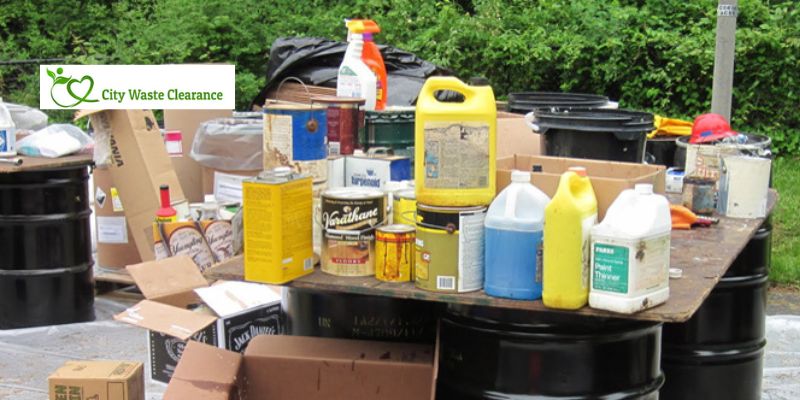Dispose of household waste responsibly by sorting recyclables from non-recyclables. Use designated bins for proper waste management.
Proper household waste disposal is essential for a clean and healthy environment. Sorting waste into recyclables and non-recyclables helps reduce landfill impact. Use designated bins for paper, plastic, glass, and organic waste. Composting organic waste turns kitchen scraps into valuable compost for gardens.
Hazardous waste, such as batteries and chemicals, requires special handling. Most communities offer recycling centers or collection services. Regularly cleaning waste bins prevents odors and pests. Educate family members on waste segregation to ensure everyone participates. Responsible waste disposal supports sustainability and keeps neighborhoods clean. Make small efforts daily for a significant environmental impact.
Introduction To Eco-friendly Dispose of household waste
Proper waste disposal keeps our environment clean. It prevents pollution and protects wildlife. Recycling helps save resources and energy. Composting reduces the amount of waste sent to landfills. Hazardous waste must be handled carefully to avoid harm. Educating others about waste disposal is crucial. Each person can make a difference by following these steps.
Improper waste disposal leads to serious problems. Landfills can leak harmful chemicals into the soil. Oceans get polluted with plastic waste. Animals can get sick from eating trash. Air pollution increases from burning waste. These issues harm our planet and our health. Small actions can help reduce this impact. Use eco-friendly products and reduce waste.
Reduce Waste At Home
Live with fewer items to reduce waste. Donate items you do not use. Recycle what you can. Avoid single-use plastics. Choose products with less packaging. Buy second-hand items instead of new ones. Compost food scraps to cut down on trash.
Make a list before shopping. Stick to your list to avoid impulse buys. Buy in bulk to reduce packaging waste. Choose reusable bags over plastic ones. Shop locally to reduce your carbon footprint. Opt for quality items that last longer. Avoid products with excessive packaging.
Recycling Best Practices
Always separate paper, plastic, glass, and metal. Clean them before placing in the bin. Remove lids from bottles and jars. Flatten cardboard boxes to save space. Use clear bags for recyclables if possible.
Plastic bags should not go in the recycling bin. These can jam the machines. Never put food waste with recyclables. Styrofoam is usually not recyclable. Check local guidelines to be sure. Do not include electronics or batteries in regular recycling. These need special handling.
Composting Organic Waste
Composting organic waste transforms kitchen scraps into nutrient-rich soil, reducing landfill waste. Easily manage Dispose of household waste while benefiting your garden.
Setting Up A Compost Bin
Pick a shady spot for the bin, and make sure it is close to water. Add brown materials like leaves first, then green materials like kitchen scraps. Mix the layers well. Keep the compost moist. Turn the pile often for air. This helps break down waste faster. Use the compost in your garden.
Composting Do’s And Don’ts
| Do’s | Don’ts |
|---|---|
| Add fruit and veggie scraps | Don’t add meat or dairy |
| Use coffee grounds and eggshells | Don’t add oily foods |
| Include yard waste like leaves | Don’t add pet waste |
Safe Disposal Of Hazardous Materials
Hazardous waste, such as batteries, paint, and chemicals, can harm health and the environment. Identify these items in your home and check labels for warnings and symbols. Proper identification helps ensure safe disposal.
Each community has specific rules for waste disposal. Contact your local waste management authority for guidelines. Many areas have special drop-off locations for hazardous items. Follow these rules to keep your community safe.
Frequently Asked Questions
How To Properly Dispose Of Electronics?
Recycle electronics at designated e-waste centers. Many retailers accept old electronics for proper disposal.
Can I Recycle Plastic Bags?
Yes, recycle plastic bags at grocery store collection points. Do not place them in curbside recycling bins.
What Are Compostable Household Items?
Compost fruit peels, coffee grounds, and eggshells. Avoid meat and dairy products in compost bins.
Conclusion
Properly Dispose of household waste is essential for a cleaner environment. By following these tips, you contribute to sustainability. Separate recyclables, compost organic waste, and safely dispose of hazardous materials. Your efforts can make a significant difference. Start today and help create a healthier planet for future generations.


